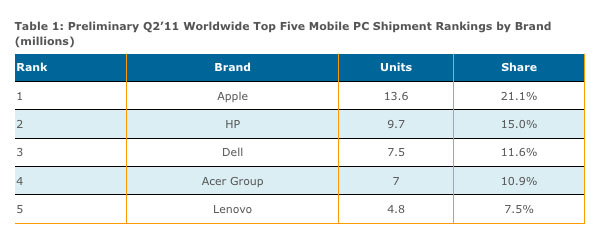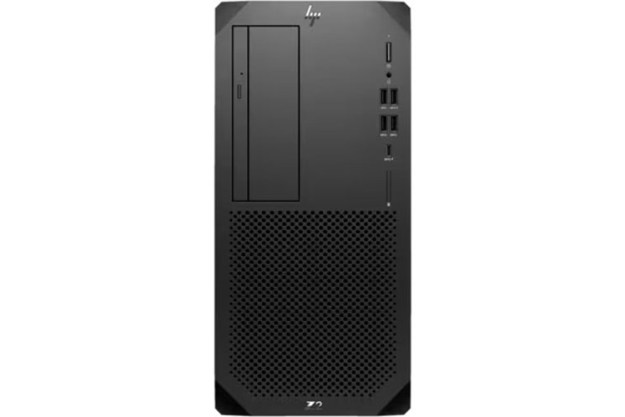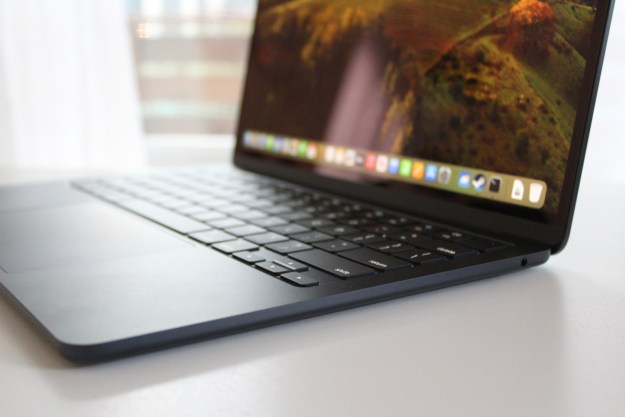
Ask ten people if a tablet is a PC and you’ll likely get a roughly even split between the “yes” and “no” camps. Although few would dispute that tablet devices are not as capable as traditional notebook or desktop computer for some computing tasks—just try developing an interactive Web site using an Android tablet, for example—there’s also little doubt that tablets are not just media-consumption devices that can be easily dismissed by the technically-inclined. For many people, tablets do most of the things they want from a traditional computer: Web, email, instant messaging, video chat, social networking, online media, games, and (heaven forfend) even a little bit of word processing and productivity tasks.
Market research firm DisplaySearch has taken that idea to the next level, and has decided the count tablets as “mobile PCs” alongside notebook computers—and, as a result, finds Apple is by far the leader in the mobile PC market, accounting for a 21.1 percent share of the worldwide market and shipping some 13.6 million units during the second quarter of 2011. Technology giant Hewlett-Packard came in second, with 9.7 million units shipped to account for 15 percent of the market. Dell, Acer, and Lenovo rounded out the top five, with 11.6 percent, 10.9 percent, and 7.6 percent of the worldwide market, respectively.
Apple’s market-leading position is due to iPad sales: Apple moved some 10.7 million iPads during the quarter, accounting for 80 percent of it’s “mobile PC” sales under DisplaySearch’s definition.
DisplaySearch also notes that overall notebook PC shipments were down two percent compared to the first quarter of 2011, but up two percent compared to the same quarter last year, totaling up some 48 million units worldwide for the quarter. Dell and Samsung saw the largest growth (up 44 percent and 33 percent from last year, respectively), while Acer showed saw its unit shipments fall 4 percent from last quarter and 12 percent compared to last year—largely because sales of consumer notebooks (like netbooks) have fallen sharply as consumers turned to tablets—like the iPad.


